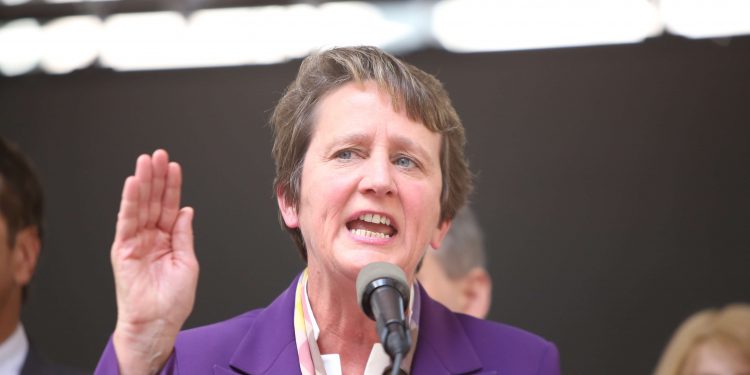
In an interview with Bloomberg BusinessWeek, Mary Kay Henry made some stunning claims and decided to ignore basic facts about the effects of Seattle’s minimum wage hike
October 20, 2016

In an interview with Bloomberg BusinessWeek, Mary Kay Henry made some stunning claims and decided to ignore basic facts about the effects of Seattle’s minimum wage hike
October 20, 2016
In an eye-opening interview with Bloomberg BusinessWeek published this morning, Mary Kay Henry made some stunning claims and decided to flat out ignore basic facts so that she could continue to promote SEIU’s effort to boost their membership rolls and fill the union’s coffers through a $15 minimum wage.
When asked about how the $15 minimum wage was going in cities that had implemented it, Henry spoke glowingly about its impact in Seattle, saying it “has catalyzed small-business job growth, because those workers are spending those dollars in the community.”
That’s certainly an odd claim to make since evidence out of Seattle has shown that there has been a reduction in employment and that individuals who still have jobs are working fewer hours.
In August, The Wall Street Journal summarized a recent report from The University of Washington that studied the minimum wage increase in Seattle:
Even so, Seattle’s uptick in hourly wages is offset by a reduction in employment and hours. The ordinance “modestly held back” employment of low-wage earners, and hours worked “lagged behind” regional trends, on average four hours each quarter (or 19 minutes a week). Many such individuals moved to take jobs outside the city at “an elevated rate compared to historical patterns,” says the report.
Some other headlines from policy analysts and business-focused publications on how the minimum wage increases has hurt The Emerald City:
AEI’s Mark J. Perry: Some Early Results From Seattle’s Radical Experiment With A $15 An Hour Minimum Wage: Fewer Jobs, Fewer Hours
Cato Institute’s Charlie Hughes: Seattle’s Minimum Wage Increase: Sky Is Not Falling Yet, but “Ambiguous” Effects for Low-Wage Workers Due to Negative Unintended Consequences
Investor’s Business Daily’s Terry Jones: The Bitter Lesson From Seattle’s Minimum Wage Hike
Forbes’ Tim Worstall: As I Predicted, Seattle’s Minimum Wage Rise Is Reducing Employment
BloombergView’s Megan McArdle: Early Returns From Seattle’s Minimum-Wage Experiment
WonkBlog’s Max Ehrenfreund: Why Raising The Minimum Wage In Seattle Did Little To Help Workers, According To A New Study
Henry went on in the interview to claim that she hasn’t seen any signs that higher wages have discouraged hiring (not true: see above) and that she anticipates continued employment gains next year.
That argument goes against the claims of progressives like Neera Tanden, who wrote in an email published by WikiLeaks that, “substantively, we have not supported $15 — you will get a fair number of liberal economists who will say it will lose jobs.”
It’s not a surprise that Henry would lie about the real story in Seattle. Throughout the minimum wage increase movement, it’s clear that she and SEIU don’t care about helping individuals find jobs and work more hours. Instead, she and her union are only concerned with adding to their declining membership numbers and trying to further line their pockets with cash.